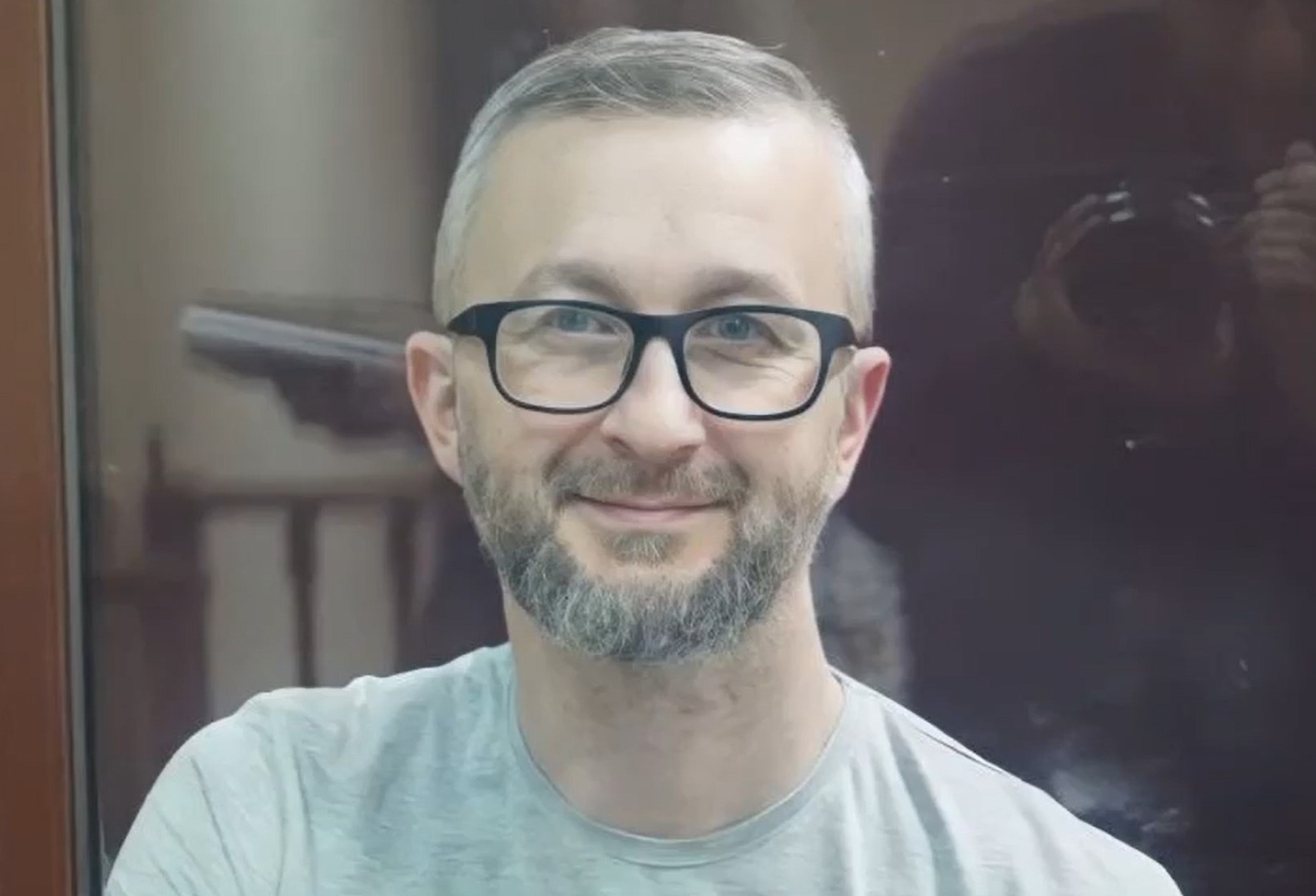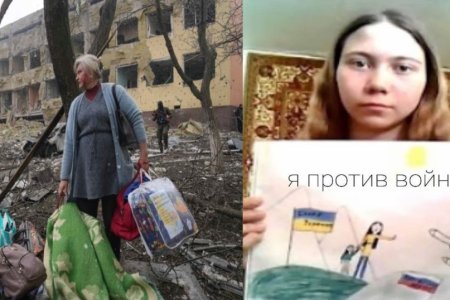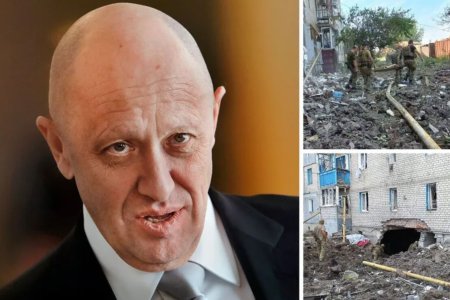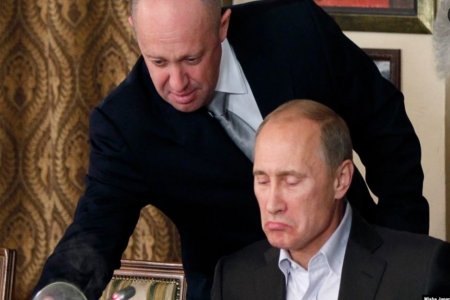
Russia has moved Nariman Dzhelyal, its most prominent Ukrainian political prisoner, to the Crimean prison opened to accommodate the huge increase in hostages following Russia’s full-scale invasion of Ukraine. The conditions are particularly severe, and demonstrate Russia’s total disregard for rule of law, given that the horrific 17-year sentence passed on the Crimean Tatar Mejlis leader, journalist and human rights defender has not yet come into force.
Leviza Dzhelyalova reported her husband’s transfer to SIZO [pre-trial prison] No. 2 on 13 May, a day after she and his lawyers attempted to visit him. They learned that he had been moved to the new SIZO, and that he was being held in a quarantine cell, together with two prisoners. He had not been allowed to bring any possessions, or items of food into the cell, and all books and documents were removed “to be checked”. It seems that only food provided by the SIZO can be eaten, with this likely to even further jeopardize the health of all those whom the Russians are illegally imprisoning.
The regime in the SIZO is shockingly severe given that any sentences, even according to Russian legislation, have not come into force. From 6 a.m. until lights out at 22.00, the inmates are forced to either remain standing or sit on a hard bench in the cell. They are prohibited from either sitting or lying on the bed during these hours. All had their head and beards shaved when brought into the SIZO, and they are moved about, bent over at 90 degrees, head first, with their hands behind their back. The conditions have seriously exacerbated Nariman’s three herniated discs, and it is very difficult for him to have to stand or sit all the time.
Leviza confirms, however, that, if Russia is trying to break her husband, they don’t have a chance. Despite the lawlessness and injustice he is subjected to, his honour, dignity and huge willpower, his purity and commitment to high moral and life values remain unshaken. This his persecutors cannot understand, Leviza says. “They can’t understand that, taking away his freedom in life they can’t crush his inner freedom, his strength of spirit.”
Russia’s arrest of Nariman Dzhelyal in September 2021 received international condemnation with nobody in any doubt that the preposterous charges against him were in revenge for his involvement in the Crimea Platform inaugural meeting in Kyiv on 23 August 2021. Dzhelyal is the First Secretary of the Mejlis, or representative body, of the Crimean Tatar people, and also a prominent journalist and civic activist. His participation in the Crimea Platform, which brought together high-ranking representatives of 45 countries, was invaluable, but also dangerous. Moscow had reacted with hysteria and aggression to the holding of this international meeting focused on deoccupation of Crimea, and had openly threatened Dzhelyal with reprisals if he attended.
Dzhelyal was one of five Crimean Tatars effectively abducted after raids of their homes on 3 or 4 September 2021, with no information provided about their whereabouts until late on 4 September. Two of the three men seized during the night from 3-4 September, namely Asan Akhtemov and his cousin, Aziz Akthemov, were only finally able to see proper lawyers almost ten days later, after the European Court of Human Rights [ECHR] intervened. They immediately retracted all ‘testimony’ extracted during the period they were held incommunicado and gave shocking accounts of the torture used to obtain this. As well as electric shocks and other physical torture, the FSB also threatened reprisals against the men’s families. Both Eldar Odamanov, abducted in the morning of 3 September, and Shevket Useinov, seized during the following night, were held incommunicado until 5 September, before being jailed for 10 and 15 days on absurd charges, quite unrelated to the armed raids on their homes. As feared, the two latter men had been forced into ‘testifying’ against Dzhelyal and the Akhtemovs. During the men’s trial, however, both men described the illegal methods of duress that the FSB had used to obtain such ‘testimony’.
Absurd charges
There is no real evidence that an act of sabotage was committed on 23 August 2021, while Dzhelyal was in Kyiv. There appears to have been some minor damage to a gas pipe in Perevalne, with the initial criminal investigation launched being under Article 167 § 2 of Russia’s criminal code (‘deliberate destruction or damage to property’. There was no further mention of this damage, and to this day no photos, etc. have been made public. The gas pipe in question was not on any central circuit and could be fixed relatively easily, and painlessly, given that any disruption to gas supplies was in summer.
Despite all of the above, the FSB first seized five Crimean Tatars and then came up with the claim that there had been an act of ‘sabotage’ which had been planned by Ukraine’s Military Intelligence together with the Mejlis.
No evidence
The indictment was based solely upon ‘testimony’ obtained while men were held incommunicado and without access to the lawyers of their choice. In the case of both Akhtemovs, this so-called testimony was retracted as soon as they were able to speak with lawyers. The first of many increases to the charges came immediately after the Akhtemovs ignored an open threat from the FSB and retracted ‘confessions’ obtained through torture. As well as confirmation in court from both Odamanov and Useinov, that they had been placed under duress, there had also previously been public statements from two Crimean Tatars who found the courage to refuse to collaborate with the FSB and provide false testimony.
The men were all accused of carrying out an act of sabotage as part of an organized group (Article 281 § 2a), and of the illegal purchase, transfer or possession of explosives as part of an organized group (Article 222.1 § 4). On 8 November, an additional charge was added, of smuggling an explosive device, as part of an organized group (Article 226.1 § 1); and of ‘causing considerable material damage to the Crimean gas network (to the tune of around 1,425 USD). It was even claimed that the minor damage to an obscure gas pipe constituted “an attack on the Russian Federation’s defence capabilities”.
There were also three ‘secret witnesses’, whose ‘testimony’ could not be verified. As in all such cases, no grounds were provided to justify anonymity, yet the ‘court’ not only allowed it, but also obstructed the defence from demonstrating the flaws in the supposed testimony (details here).
Predetermined sentences
With no grounds for the charges, no material evidence to even back the claims of an act of sabotage, let alone the involvement of any of the three defendants, it is safe to assume that the sentences were handed down “from above. That, however, does not absolve those who took part in the travesty of liability. On 21 September 2022, ‘judges’ Viktor Ivanovich Zinkov; Aleksei Viktorovich Kozyrev and Sergei Nikolaevich Pogregniak from the Russian occupation ‘High Court’ in Crimea sentenced Nariman Dzhelyal to 17 years’ imprisonment; Asan Akhtemov – to 15 years; and Aziz Akhtemov to 13 years. All the sentences are in the harshest of Russian penal institutions, with steep fines also imposed (700 thousand roubles in Nariman’s case, 500 thousand roubles against Asan and Aziz Akhtemov). The sentence in Nariman’s case was two years longer than that demanded by ‘prosecutor’ Roman Lobov. The appeal against these sentences is still awaited.



